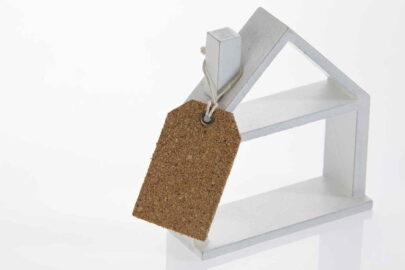The Nationwide Building Society has revealed that UK house prices fell by 1.4% in the month of June, after taking account of seasonal effects, following a 1.7% fall in May.
On a seasonally adjusted basis, house prices in June were 3.2% lower than in April.
Annual house price growth slowed to -0.1%, from 1.8% in May. This is the first time that annual house price growth has been in negative territory since December 2012.
Robert Gardner, Nationwide’s chief economist, said: “It is unsurprising that annual house price growth has stalled, given the magnitude of the shock to the economy as a result of the pandemic. Economic output fell by an unprecedented 25% over the course of March and April – almost four times more than during the entire financial crisis.
“Housing market activity also slowed sharply as a result of lockdown measures implemented to control the spread of the virus. While latest data from HMRC showed a slight pick-up in residential property transactions from April’s low, in May they were still 50% lower than the same month in 2019.
“Mortgage activity saw an even more dramatic slowdown – there were only 9,300 approvals for house purchase in May, down from 73,700 in February and 86% lower than in May 2019. However, our ability to generate the house price index has not been impacted to date, as sample sizes have remained sufficiently large (and representative) to generate robust results.
“With lockdown measures due to be eased in the weeks ahead, housing market activity is likely to edge higher in the near term, albeit remaining below pre-pandemic levels. Nevertheless, the medium-term outlook for the housing market remains highly uncertain. Much will depend on the performance of the wider economy, which will in turn be determined by how the pandemic and restrictions on activity evolve (including any behavioural shifts).
“The raft of policies adopted to support the economy, including to protect businesses and jobs, to support peoples’ incomes and keep borrowing costs down, should set the stage for a rebound once the shock passes, and help limit long-term damage to the economy.
“These same measures should also help ensure the impact on the housing market will ultimately be less than would normally be associated with an economic shock of this magnitude.
Lucy Pendleton, from at independent estate agents James Pendleton, added: “Prices are down by a whisker annually but what is remarkable is how soft a landing the market has had given the scale of the disaster that has unfolded in the past few months.
“Nationwide’s reading of the situation is totally in line with recent indications that the prices being achieved on the doorstep have slipped to 2% or 3% below asking prices on average.
“June was the first full month of trading since the property market came back to life post-lockdown and these sellers will be those highly motivated to move through necessity. That pool of vendors will shrink rapidly and that could put a floor under prices.
“The public are repeatedly hearing that GDP has collapsed and we face a worse recession than the global financial crisis but that soundtrack isn’t translating into a house price correction at the moment.
“That kind of resilience would normally be seen as a sign of strength and confidence but we’re going to have to wait for the furlough scheme to end to find out what this market is really made of.”
